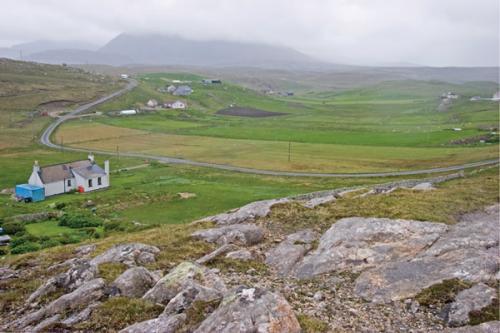
Community Land Ownership Playing a Successful Role in Rural Scotland, Says New SAC Study
Community land ownership (CLO) is playing a successful role in strengthening rural Scotland, a new SAC (Scottish Agricultural College) study has concluded. The findings have prompted Community Land Scotland, the membership organisation for community landowners, to restate its call that CLO can and should be developed beyond its current concentration in the primarily crofting communities of the Highlands and Islands.
The study by SAC’s Rural Society Research Team involved visits to all 17 of Scotland’s Community Land Trusts – the biggest and smallest, the oldest and youngest and four that are in the process of buying their land. Their populations range from 23 people to 11,000. Together they own just under half a million acres of land. Funding for the purchases has been from the Scottish Land Fund (2001-2006), Big Lottery (Growing Community Assets 2006-2010, 2010-2015), and specific donations to communities.
This is the first part of a three-phase research investigation, in which SAC is exploring the effectiveness of different approaches to development in rural communities. The next stage will look at the role of private landlords and a third will research development trusts supported directly by the public sector.
According to the study’s author, SAC’s Dr Sarah Skerratt, CLO is contributing to the ‘re-peopling’ of rural Scotland by enabling existing residents to remain in remote areas and encouraging in-migration. This is because ownership is giving communities the opportunity to increase local employment and develop revenue streams through the creation of new business, build affordable housing, sustain rural schools and deliver basic infrastructure such as roads and electricity.
The SAC study found challenges in CLO vary according to the size of a community and its stage in the land-purchase cycle. Issues highlighted include effective communication between the Trust boards and their wider communities, and transparent decision-making. The study concludes, however, that in general communities are overcoming challenges themselves, and also by seeking training and guidance from others.
Dr Skerratt, who carried out the research, said: “It is evident that community land ownership is one clear way of achieving a more vibrant rural Scotland. While communities may not all have the range of skills and capacity needed for the task of purchasing and developing their land, they are overcoming the challenges by ‘importing’ training, guidance and support to complement what they have locally.”
SAC’s research has prompted David Cameron, Chairman of Community Land Scotland, to call for more communities to consider CLO as a viable option. He said: "SAC has undertaken the most comprehensive study yet that provides independently evaluated proof that community landownership is working successfully in Scotland.
“On the basis of the evidence provided in the report, I am confident that it will encourage other communities to consider whether landownership could be an option for them. This applies not only to areas in the Highlands and Islands - I believe that there are absolutely no barriers to it happening right across Scotland wherever there are willing communities.
“We hope that the study’s findings will be circulated to all levels of government and to agencies connected with community empowerment. Its conclusions surely must encourage them to contribute to a new and exciting time in community landownership.”
Dr Skerratt highlights that the Scottish Government has pledged to review the Land Reform (Scotland) Act 2003, which creates the right for communities to buy their land, and to reinstate the Scottish Land Fund which creates the financial means to buy. She believes these two commitments will enhance the growth of CLO.
She said: “The Scottish Government has committed to establishing resilient communities and our evidence shows that community landownership is delivering this brief. Since the Land Reform Act (Scotland) 2003 and the Scottish Land Fund are important to the future growth of CLO, how the government chooses to take these forward will be of critical importance.”
A full copy of the study report ‘Community Land Ownership and Community Resilience’ can be accessed on SAC's Rural Policy Centre Hot Topics page.
For further information, images or to interview the Community Land Trusts that took part in the SAC study, please contact Jane Smernicki on 0131 535 4331 or Dr Sarah Skerratt on 0131 535 4335.
Published on 19 July 2011 in Sustainability and Communities
Topics
- Climate, water and energy
- Ecosystems and biodiversity
- Food, health and wellbeing
- Sustainability and Communities







